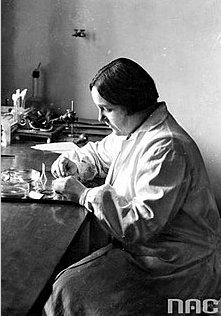Who was Zofia Weigl?
Zofia Weigl was born on May 12, 1881, in Kraków, Poland. She was the youngest of four children. Her father, Stanisław Weigl, was a professor of mathematics at Jagiellonian University. Her mother, Zofia née Tarnowska, came from a family of landowners and had a strong interest in music and the arts.
Weigl’s older sister Maria became a famous singer and her brother Tadeusz became a well-known composer. As a child, Weigl showed great promise as a pianist. She began studying piano at the age of six with Władysław Żeleński, one of the most eminent Polish composers and pedagogues of his day.
At the age of sixteen, Weigl made her debut as a solo pianist with the Warsaw Philharmonic Orchestra playing Chopin’s Piano Concerto No. 2 in F minor. The following year she toured Poland with her sister Maria.
In 1901, Weigl enrolled at the Vienna Conservatory to study composition with Johann Nepomuk Fuchs and piano with Wilhelm Backhaus. She also attended classes in history and philosophy at the University of Vienna. After graduating from the conservatory in 1903, she returned to Poland where she began teaching piano and composition.
Weigl’s compositional style was influenced by both Polish folk music and contemporary classical music trends.
What did she do?
In her lifetime, Zofia Weigl accomplished many things. She was a writer, a teacher, and an advocate for women’s rights. She also founded the first Polish women’s magazine, which was influential in shaping public opinion about women’s issues.
Why are her achievements important?
Zofia Weigl’s achievements are important because she was one of the first Polish women to achieve success in a male-dominated field. She also opened up opportunities for other Polish women to follow in her footsteps. Her work helped to change the way people think about women’s roles in society, and she is an inspiration to all who fight for gender equality.
Conclusion
Zofia Weigl was a Polish woman who lived an extraordinary life. She was influential in her country’s fight for independence, and she also worked tirelessly to improve the lives of women and girls in Poland. Her legacy continues to inspire women all over the world, and she is truly an inspiration to us all.
Zofia Weigl was a powerful force for good in her native Poland, and her influence is still felt today. She was a brave woman who fought for her country’s independence, and she also worked hard to improve the lives of women and girls in Poland. She is an inspiration to us all, and her legacy will continue to inspire women for generations to come.





